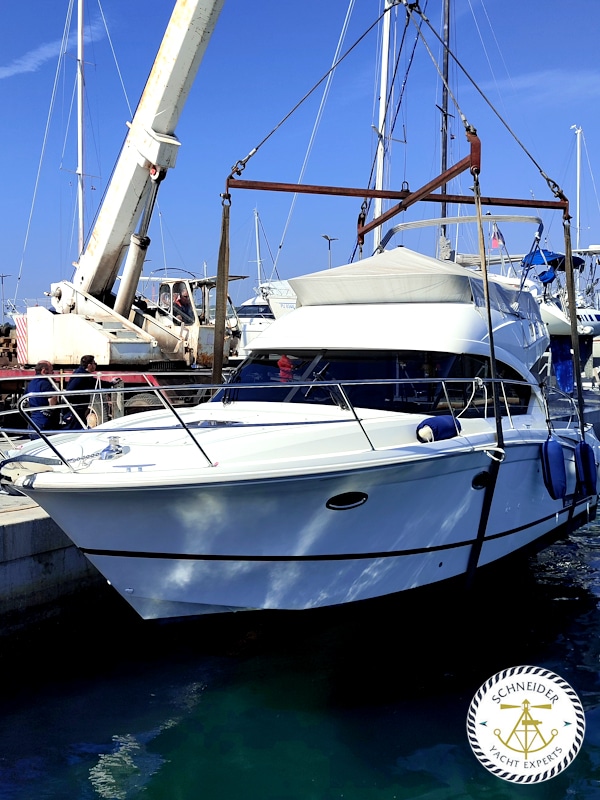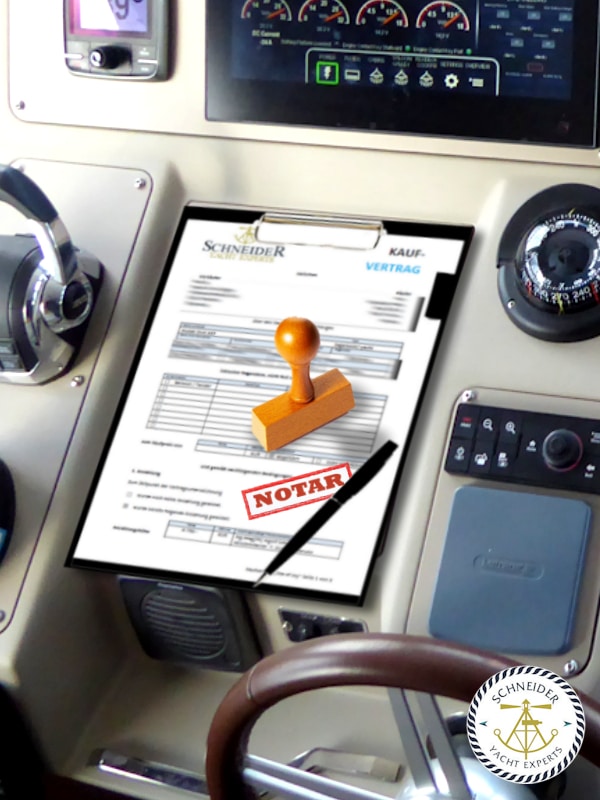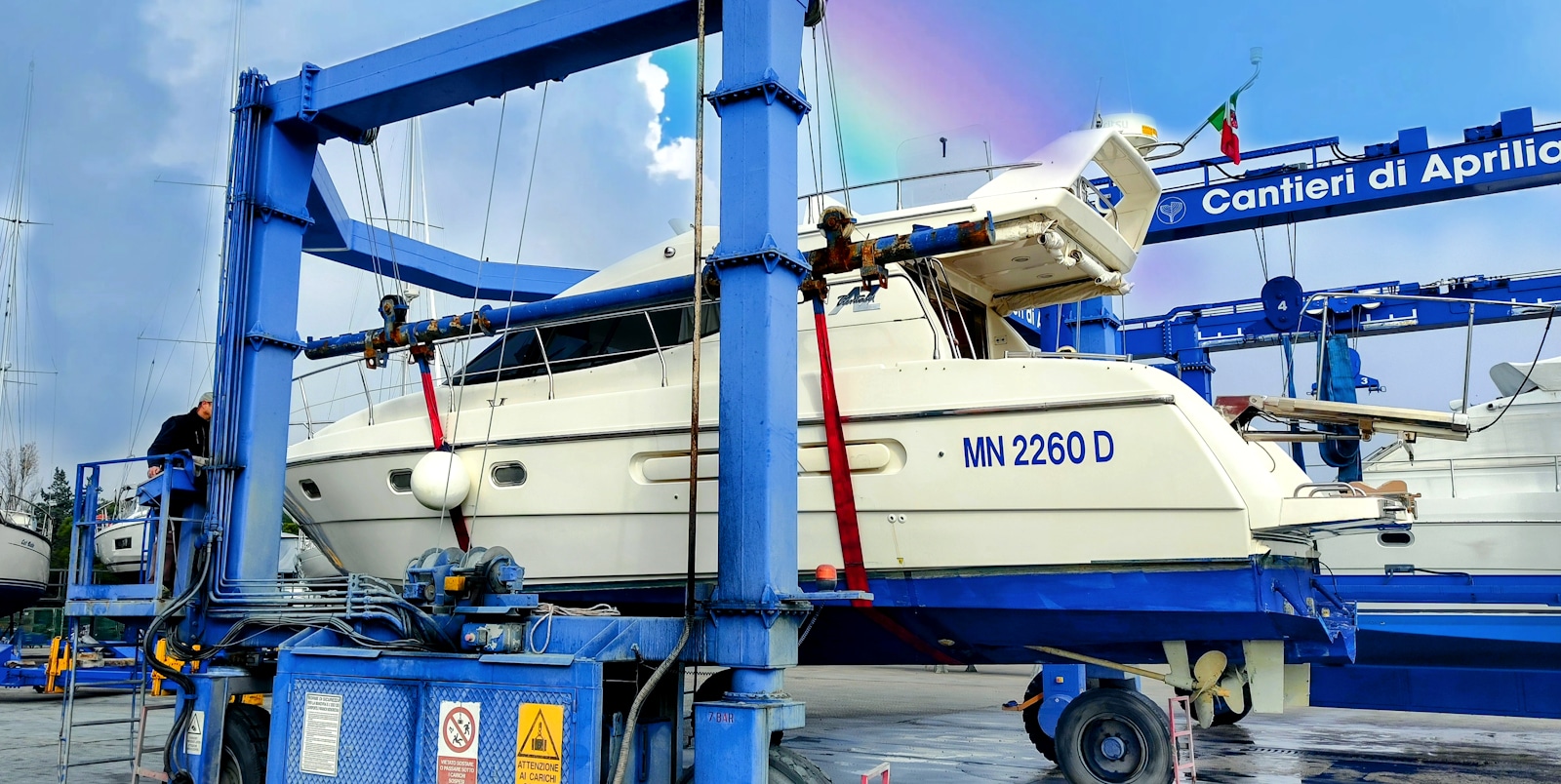If you are thinking of buying a boat in Italy, you have chosen one of the most beautiful sailing and yachting destinations in Europe.
The Italian way of life and the incomparable landscape characterized by picturesque harbours, endless beaches and excellent gastronomy are just a few of the advantages you can enjoy with your own boat in Italy.
But how do you find the ideal boat and what do you need to bear in mind during the purchasing process?
In the following article, we inform you about the most important steps and provide helpful tips.
Table of contents
Step 1: The search for the ideal boat in Italy
Analyze individual needs:
Before you buy a boat in Italy, think carefully about what you want to buy it for and how you want to use it.
The variety of boat types is now almost unmanageable and choosing the right boat can be quite a challenge, especially for newcomers to boating.
So before you buy, think about what features your boat should have and, if necessary, involve your family to help you make the right decision.
Online portals and local retailers:
Once you have decided on the type of boat and your budget, it is best to start your search on specialized online portals that offer a large selection of boats throughout Italy.
Use the filter functions to refine your search by type, size, price and location.
At the same time, it is advisable to contact Italian boat brokers and local dealers.
Tip: In some regions, there are also regular boat shows that allow you to view the boats.
One example is the annual used boat show Nautilia in Aprilia Marittima.
Step 2: Inspection and test drive
If you have your eye on a potential boat, it is generally advisable to carry out an initial inspection to assess its condition on site.
Whether and to what extent an expert is consulted depends largely on how much experience you already have with boats.
The most important thing at this stage is that you get an initial feeling for whether the boat actually meets your expectations and whether it is worth tackling the rest of the purchase procedure.
If you discover defects on site that cast doubt on your purchase intentions, you can also document or photograph them in order to obtain the opinion of an expert afterwards.
As far as the test drive is concerned, the possibilities usually depend on the size of the boat:
While the sellers of smaller boats often agree to such a test drive during the first inspection, larger boats and yachts usually require certain declarations of intent or preliminary contracts in order to justify the associated expenses and costs for the owner.
The same also applies with regard to the survey by an expert – see below.
In any case, the boat should be subjected to a thorough inspection and test drive before the final purchase decision is made.
It is also advisable to take the boat out of the water to check the underwater hull, the drive train and the steering system in detail.
Less experienced buyers should also involve an expert or yacht surveyor here.

Step 3: Questions about the legal framework
Is a deposit required for the purchase of a boat in Italy?
Under certain circumstances, a deposit must be paid for the purchase of a boat in Italy even before a possible inspection or test drive.
This is particularly the case if it is sold through a broker or yacht broker.
The down payment is intended to ensure that your interest in purchasing the vehicle is concrete and serious and that the organizational effort required for the inspection and test drive is justified.
The amount of this down payment must be negotiated on a case-by-case basis.
However, a figure of around 10 percent of the purchase price is usual.
What contractual details need to be considered when buying a boat in Italy?
As in any other country, it is of course also advisable in Italy to seal the purchase of a boat by means of a written purchase contract, whereby a fundamental distinction must be made between the purchase from a private individual and the purchase via a broker.
While private individuals generally have freedom of design with regard to the purchase contract, brokers usually use far more comprehensive contracts to regulate the entire transaction.
These are often based on the guidelines of the Mediterranean Yacht Brokers Association (MYBA).
Important components of such a contract include
- The amount of the purchase price and the down payment
- The handling of the inspection by a certified yacht surveyor
- As well as the handling of any defects, including withdrawal clauses in the event of serious defects.
Is a notary required to buy a boat in Italy?
Whether a notary is required for the purchase of a boat in Italy essentially depends on the flag under which it is registered.
If you buy a boat that is licensed and registered in Germany or Austria, for example, the purchase contract does not usually need to be notarized.
However, if you buy a boat that is licensed and registered under the Italian flag, the purchase contract must be certified by a notary.
This is a prerequisite for issuing the so-called “Nulla Osta” and de-registration from the Italian ship register.

What is meant by a "Nulla Osta"?
The “Nulla Osta” is an official declaration of consent which certifies that the boat is not encumbered by mortgages or other financial liabilities (e.g. to tax authorities) in Italy.
De-registration from the Italian ship register is not possible without submission of this document.
How does de-registration from the Italian shipping register work?
De-registration from the Italian ship register can only be arranged by the owner himself or by authorized agencies.
It is best to clarify the procedure in writing in the purchase contract to avoid any problems.
ATTENTION! You can only re-register the boat under a different flag once the de-registration has been confirmed by a corresponding official declaration of deletion.
Tips for buying a boat in Italy through a broker
A broker can play an essential role when buying a boat in Italy.
He is experienced in dealing with the legal peculiarities of the Italian market and can build a bridge between the seller and you as the buyer.
This can be particularly helpful for buyers who are not local or do not speak Italian.
We have put together a few tips for you to ensure that buying through an estate agent goes as smoothly as possible:
How do you recognize a good broker?
1. expertise and experience: A good broker should have extensive knowledge of different types of boats, their manufacturers and the market conditions.
In addition, they should have been established in the market for some time in order to have the necessary experience.
2. association membership: Top brokers are often members of professional associations such as the International Yacht Brokers Association (IYBA).
Such memberships usually require ethical behavior and a certain standard of professional competence.
3. transparency and communication: A good broker will communicate transparently about the boat and the purchase process, including all possible additional costs.
They will provide you with the brokerage agreement with the owner upon request to prove their authority to represent you and will have no objections if you mention having the boat inspected by a certified yacht surveyor prior to purchase.
If, on the other hand, he is reluctant to communicate openly and transparently with you at all times, you should exercise caution.
4. network: A broker who can provide you with the best possible support when buying a boat in Italy should also have a corresponding network of local contacts.
Examples include lawyers or notaries as well as repair companies who can help you in the event of technical problems.
How high is a broker's commission in Italy?
The commission for a boat broker in Italy is usually around 5% to 10% of the final sale price, although the percentage can vary depending on the region and the type and price of the boat.
This is an important consideration when budgeting for your boat, as the cost of the commission is often borne by the buyer and is additional to the purchase price.
Conclusion
Buying a boat through a broker can certainly simplify the entire process, as long as it is ensured that the broker has the necessary expertise, experience and reliability.




